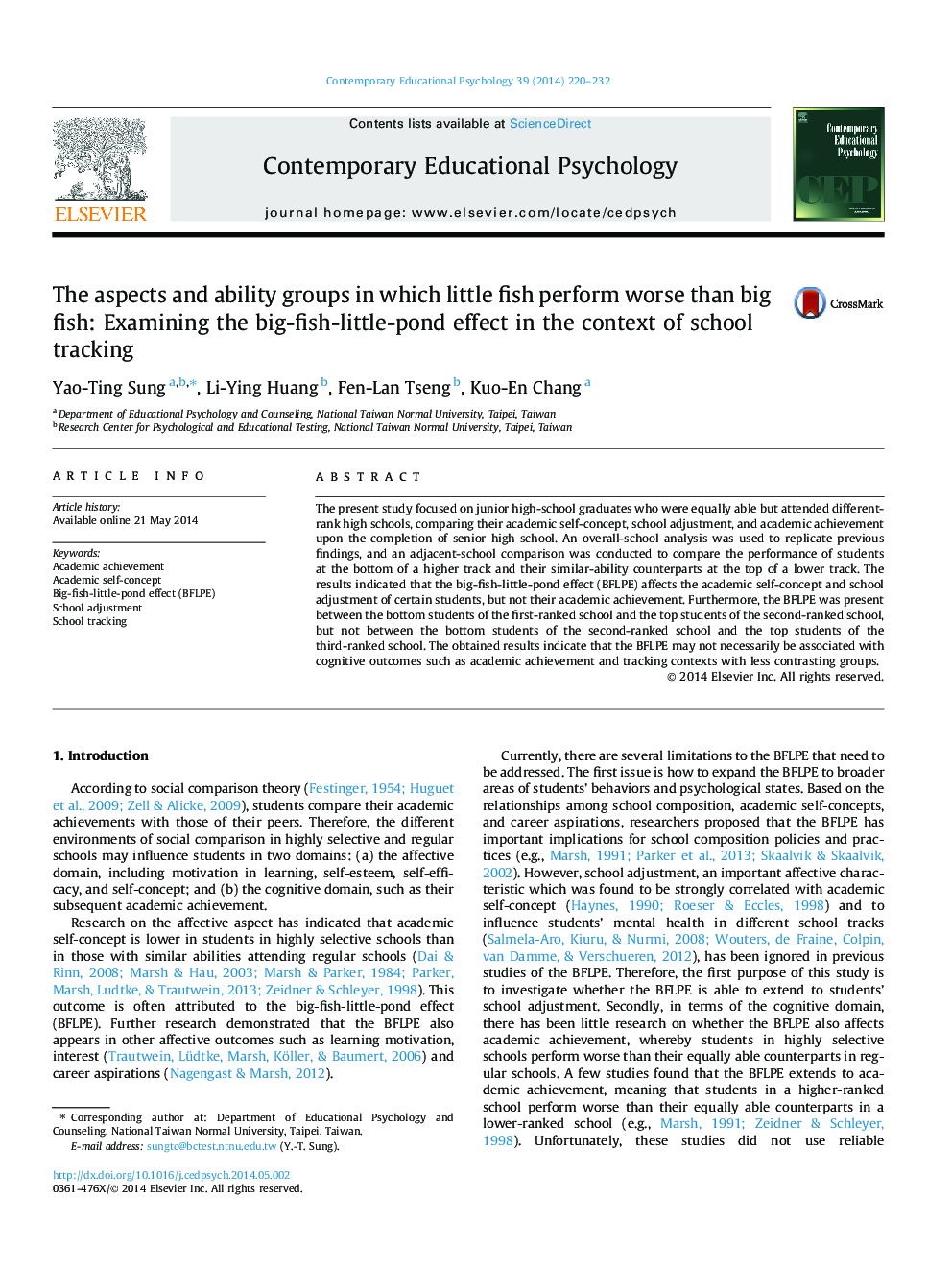| Article ID | Journal | Published Year | Pages | File Type |
|---|---|---|---|---|
| 352591 | Contemporary Educational Psychology | 2014 | 13 Pages |
•We examined how the BFLPE affects equally-skilled students in different tracks.•The BFLPE did not affect student learning achievement.•BFLPE for academic self-concept between bottom of #1 schools and top of #2 schools.•BFLPE for school adjustment between bottom of #1 schools and top of #2 schools.•No BFLPE between bottom of #2 schools and top of #3 schools.
The present study focused on junior high-school graduates who were equally able but attended different-rank high schools, comparing their academic self-concept, school adjustment, and academic achievement upon the completion of senior high school. An overall-school analysis was used to replicate previous findings, and an adjacent-school comparison was conducted to compare the performance of students at the bottom of a higher track and their similar-ability counterparts at the top of a lower track. The results indicated that the big-fish-little-pond effect (BFLPE) affects the academic self-concept and school adjustment of certain students, but not their academic achievement. Furthermore, the BFLPE was present between the bottom students of the first-ranked school and the top students of the second-ranked school, but not between the bottom students of the second-ranked school and the top students of the third-ranked school. The obtained results indicate that the BFLPE may not necessarily be associated with cognitive outcomes such as academic achievement and tracking contexts with less contrasting groups.
